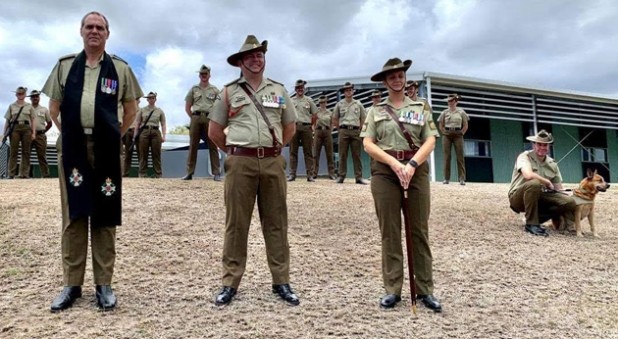The Afghanistan Inquiry’s findings were deeply disturbing. The acts reported of a relatively small number of individuals were horrific, appalling and disgraceful. As the Chief of the Defence Force stated: “the unlawful killing of civilians and prisoners is never acceptable”.
The alleged misconduct brings dishonour on the overwhelming majority of Australians who served in Afghanistan with bravery, compassion and professionalism. It brings shame on the SAS, the Commandos, the Australian military and Australia in general. And this from one of our most highly trained and revered elements of the Defence Force.
It is a necessary report, but it’s hard reading.
Steps have been taken by the Army since these allegations first came to light four years ago to begin to change the culture that allowed this misconduct to occur. Of course, more needs to be done and I am confident it will be.
It’s in this context that Defence chaplains have a significant part to play. The military call-sign for a chaplain is “shepherd” and a primary task of chaplains is to provide pastoral care. They are under-shepherds of the Great Shepherd and the Good Shepherd.
An Anglican chaplain’s identity and motivation is founded on the extraordinary life-changing and life-giving work of Jesus Christ; his life, death, resurrection, ascension and imminent return. They are shaped by a worldview that all people are created in God’s image and therefore have dignity and value. That all will one day stand before God and have to give account.
Chaplains’ actions are an extension of their beliefs, which are based on Scripture, and see them provide pastoral care to people of all faiths and no faith.
Jesus, the Good Shepherd, became human to live among us, share our experiences and serve us sheep even to the point of laying down his life for us. Like Jesus, a chaplain lives among the Defence personnel, sharing all the dangers and difficulties.
The chaplain’s role is characterised by humility and compassion but also, as a shepherd, they are a leader and protector of the sheep, which requires courage and resilience. Their shared experience and protective leadership builds trust from the most junior member of Defence to those in command. This trust is the foundation of their influence and effectiveness as a chaplain.
The hallmarks of Anglican chaplaincy are that we are faith-driven, gospel-focused, people-oriented and command-responsive. Under God, we demonstrate his love by awakening people to him, sustaining and nurturing them on their faith journey, and praying and caring for them.
Chaplains provide unhurried, non-judgemental listening and bring the truths of Scripture to bear on all manner of practical issues Defence Force members and their families face. They are used by God to bring forgiveness and peace to troubled souls, reconciliation and calm to broken relationships and stressful situations, hope to those in despair, practical support in difficult times and comfort to those suffering loss or grief.
Defence chaplains have been called by our great God and set apart to serve him in this way. It’s a tremendously valuable but difficult role as they balance standing up for the powerless, restoring the broken, sharing the good news, supporting commanders yet giving tough ethical advice even when it is unpopular. Your prayer support for them is vital.
Thank God for those who initiated the inquiry and those courageous people who gave evidence. Pray for our chaplains to draw closer to God, be secure in his arms and find rest for, and restoration of, their souls in him.
Pray that they would be compassionate and loving to all, even those accused of horrendous crimes. Pray they would have courage to stand up for the powerless and broken. Pray that they would be able to support Defence Force leaders as they make difficult decisions, providing frank and fearless advice as necessary.
Right now, there is a great need for Anglican Defence chaplains and they are of immense value to those who have been impacted by the Afghanistan Inquiry. It has affected current and former serving Defence members and their families and friends, particularly those who served in Afghanistan with such distinction, those who conducted the inquiry and leaders of the Defence Force who have to make tough decisions.
We must be there for those who need us.
Bishop Grant Dibden is the Anglican Bishop to the Australian Defence Force. He is a former senior military officer, reaching the rank of Colonel in the Australian Army.
Photo: Australian Army Chaplain Stephen Maggs with officers and members of the 3rd Combat Service Support Battalion at the unit's Remembrance Day ceremony this year. Photo: SGT Gayle Walkom






















